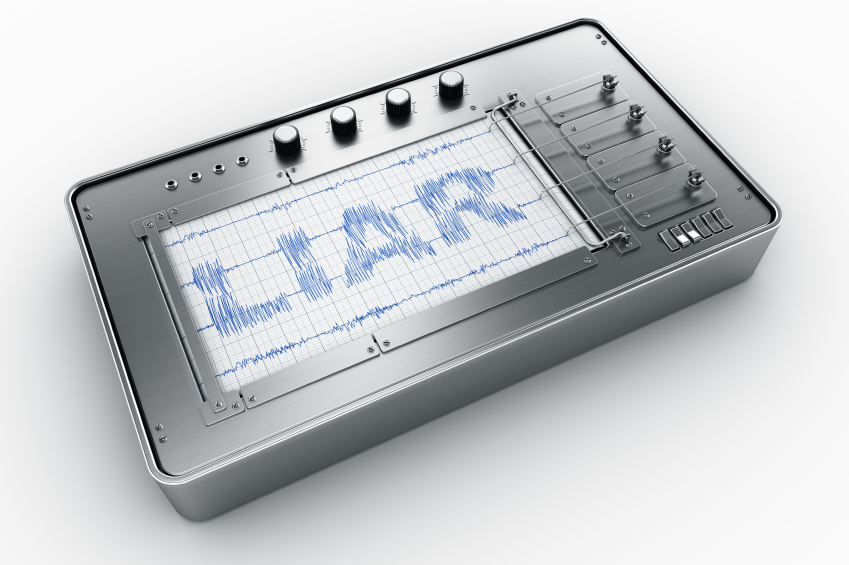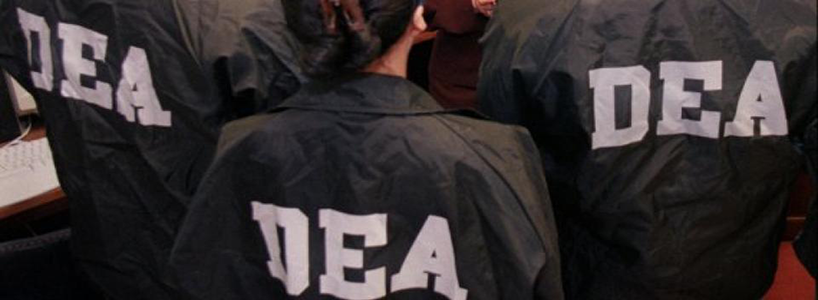Did Teleworking Speed Up the Security Clearance Process?
Last week during the Telework Exchange Town Hall Meeting, OPM Director John Berry credited the approx. 5,000 investigators who worked from home in reducing the average time needed for a security clearance investigation from a year in ’01 to 37 days.
The Department of Defense (DoD) had the greatest number (16,871) of employees teleworking. Although cybersecurity concerns may undermine the ability of many defense employees to work at home. However, as noted a few months ago, the DoD will test a program aimed to set up a secure telework site in the D.C. metro area for federal employees who need to access classified networks.
Status of Telework in the Federal Government [pdf] | telework.gov



Comment Archive
This is the only reason this works. No way they could staff enough offices to do what we do and go where we go.
I disagree with BW. I don’t think that closing offices and making field investigators work from their homes sped up the security clearance process.
Before “teleworking” existed, a small percentage of field investigators worked from their homes. It wasn’t practical or necessary to rent office space for an investigator who single-handedly covered 40,000 square miles or more of area made up of small towns ard farm land and did very few Subject Interviews. In the late 1980’s DIS started closing smaller offices (eliminating supervisory positions) and making more field investigators work from their homes. This was strictly a cost saving measure. It did not increase productivity. It had the negative effect of reducing the professional image of investigators (and the importance/seriousness of the investigation) by taking away dedicated Subject Interview rooms and making the investigator scrounge for a place to conduct Subject Interviews. I used to cringe every time I heard of a Subject Interview being conducted in a parked car, an employee cafeteria, or the Subject’s home.
In the 1990’s when notebook computers were issued to investigators and they became able to electronically transmit ROIs, DIS eliminated all first-line supervisors, closed medium-sized offices, and forced more investigators to work from home. Again, this did not result in any increase in productivity. It actually resulted in a decrease, because when field offices were closed, lower paid clerical support positions were eliminated and higher paid field investigators were burdened with more non-investigative clerical work. When we switched from DSS’s CCMS/FIMS to OPM’s antiquated PIPS, productivity again decreased because PIPS was so poorly designed for use by field investigators and because GS-12 investigators had to start doing what GS-9 case analysts previously did.
When I left OPM in spring 2007, case papers were still being mailed to field investigators. I don’t know if they still are. Before my office was closed, case papers were electronically transmitted to my office where they were printed. Investigators came into the office once every couple of days to pick up their cases. After my office was closed, case papers were printed at a regional office and mailed to the investigator. We lost 3 to 5 days in mailing and handling time. I also had concerns about the security of mail being sent to the homes of investigators rather than requiring and paying for P.O. Boxes.
There are some other important human factors to consider. The availability of workplace social interaction is important. Most people need to talk about their work. Investigators can not talk about their cases with the people they see everyday, but they can discuss case issues (without identifying anyone) with other investigators. Less experienced investigators can ask more experienced investigators for advice. Investigators can pass along useful information about changes they encountered at federal offices, contractor facilities, and other routine sources of information. Anytime there are 10 or more investigators within a 50 mile radius of each other, there should be an office with a “bullpen,” interview rooms, and a document shredder for them to use.
Yeah, OPM saved some money by eliminating physical office space and probably used that money to hire a few more investigators, but they decreased productivity by eliminating support staff and encumbering field investigators with a terrible computer system. For the contractors I think that the cost benefit of not having field offices just increases their profits; I don’t think it improves timeliness, quality or quantity.
If OPM’s new computer system (I think it is called, EPIC) is designed for both ease of use by field investigators and for headquarters personnel and if they get the right mix of field investigators and support staff, then they will be able to become more efficient. Teleworking doesn’t increase the efficiency of field investigators, it just saves the investigative agencies the cost of office space.
My wife’s mother is an illegal immigrant. Will this effect me from getting secret clearance? I do not need top-secret just secret clearance..
Thanks,
Greg
William,
Very good points. When I said “Staff enough offices” I did mean budgetary reasons, but I agree that we should have field offices. I believe we have investigators in areas never previously covered, saving some travel time. I still receive paperwork via FedX and must sign for it. Outside of having the PRSI, I brief cases on-line and start working them the day they hits PIPS–But, not sure many folks do this. But, I see your points clearly; I have seen numerous investigators conducting interviews in heavily populated rooms, which also makes me cringe.
I don’t think the EPIC program will be automated, so that will still prevent reviewers/adjudicators from teleworking.
Reviewers/Adjudicators don’t have to telework because they have an office to go to. It would be a huge risk in my mind to allow them to do this since the Investigative Process is still run by using paper.
I don’t believe that the investigators actually telework. They have to be out of an office conducting interviews, this is the only way they can do their job.
Before I started my detail with my training department I did wish we had a “satellite office” in my area where the investigators could “socialize” and where we could meet SJs and sources for interviews if needed. The area has about 18 investigators. The idea did go up to upper management but nothing ever happened.
When I was in the field I did try to stay in contact with my co-workers. I tried to meet them for lunch or even just coffee a few times a month. It worked out pretty well. When ever a new investigator came into my area I would always email or call him/her and introduce myself letting them know if they ever had any questions they could call me. I think a some of the other investigators in my area did that too. We wanted to make them feel as welcome as possible.
For us the only time cases are mailed is when an investigator mails them back to the district office after the required time frame from being transmitted. We send them via Fed Ex and we record the tracking number so the status of the cases in transit is known. I am sure this is how you do it too BW. Investigators who do not follow this protocol are disciplined.
I am interested in this new OPM computer system, EPIC. I wonder if and when we will start using it.
Reviewers for our company do telework. They usually work 3 days in the office and 2 at home. They are very happy they can do this as it works out with their family life. As for possible security concerns OPM personnel do random visits at the reviewer’s residences to make sure proper procedures are being used. In the contract written for our company OPM personnel can do that as well for the investigators. I let the new investigators I train this can occur. I encourage them to buy a lockable filing cabinet to store their cases in. This is what I did when I was out in the field. Not sure how many follow what I say but I do tell them.
I can’t really say what this does for the quality of cases. In my opinion an investigator needs to be organized, know how to communicate and be self disciplined. With these three factors they will be successful.
If this process is supposed to speed up the clearance process. Then why does it still take several months to adjudicate a clearance instead of a couple of weeks?
Steve:
You said, “I don’t believe that the investigators actually telework. They have to be out of an office conducting interviews, this is the only way they can do their job.”
I don’t think you understand the work environment of many OPM investigators. The office they report can be hundreds of miles from their home and work area. For most OPM FISD federal investigators their Standard Form 50 shows their duty station as their home address. For those investigators who report to an office near their home, the office may have no work space for investigators; its just a place to go for meetings with the boss.
Investigator: I hope you are enjoying your assignment as an instructor. How is it going? Are the students being taught the adjudicative guidelines with particular attention to the specific mitigating conditions under each guideline?
If there is extra time we discuss adjudicative guidelines. We have a set agenda that OPM audits and unfortunately adjudicative guidelines are not part of that agenda. OPM is very picky about what they want us to teach the new investigators.
One thing we are all concerned about is OPM taking over the training for everyone. Most of our training staff would be out of a job. We do have some other contracts we train on but OPM is our biggest.
I feel that telework is when people can work from home that normally would work in an office. There is no way that an investigator could completely work out of their home or nothing would get accomplished. I don’t think you are teleworking when you out on the street knocking on residences doors. This is just how an investigators job is.
I think John Berry is trying using a poor example to justify his agenda to push the telework concept. I was an old school OPM investigator prior to contractors performing the work. We were “telecommuting” in the late 1980’s by dropping off our completed cases recorded on a cassette tape for data transcribers at the office once a week and working out of our houses the rest of the time. Even back then clearance times varied depending upon work load, political administations, and a myriad of other factors. I do not see a cause/effect in this process with telecommuting.
I was fortunate enough to keep my GS when my office (DSS) was eliminated in 2004, and have been out in the field since, declining to return to supervision when it was offered by OPM a couple of years ago. My office is 40 miles but a two hour drive away (urban area), and I have been to it less than six times a year since it opened (reopened?) I have used a few hotel lobbies (virtually empty) for a few interviews, but have been lucky enough to do others at another federal agency (TSA) which has been kind enough to so freely provide. Otherwise, virtually 95% of my interviews take place on front porches, neighbor’s kitchen tables and offices where subjects and references work. I would guesstimate that 40% of my work week is spent at home checking PIPS, typing cases, email, and planning the next day and days work. Is this not teleworking ? I realize an agency could require me to make that 2 hour commute to an office (in the wrong direction) on ‘my’ time, but the return trip to my normal area of operation of two hours would be on them, and regardless, both myself and my agency would have lost that potential time for production. And yes, I get my cases in the mail, but I very often start a case by reviewing what I need to do on it in PIPS, printing out a release (if needed) while at home and sometimes finishing the required work before the mailman cometh. Is that not teleworking ?